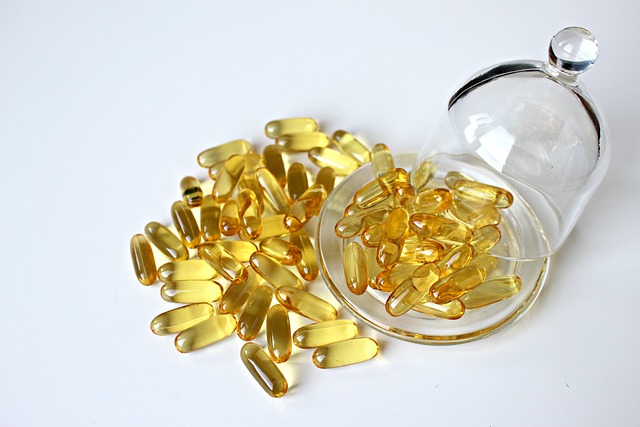In the pursuit of peak athletic performance, athletes and fitness enthusiasts are constantly seeking ways to optimize their training, recovery, and overall health. While proper nutrition, hydration, and consistent training remain the foundation of success, natural supplements have gained significant attention as tools to enhance physical capabilities. These supplements, derived from plants, herbs, and other natural sources, claim to boost energy, improve endurance, accelerate recovery, and support overall well-being. However, the role of natural supplements in athletic performance is nuanced, requiring a careful balance of scientific evidence, individual needs, and safety considerations.
Why Athletes Turn to Natural Supplements
Athletes often turn to natural supplements for several reasons:
- Performance Enhancement: To gain a competitive edge by improving strength, speed, stamina, or focus.
- Recovery Support: To reduce muscle soreness, inflammation, and fatigue after intense workouts.
- Nutrient Optimization: To fill gaps in their diet, ensuring they receive essential vitamins, minerals, and antioxidants.
- Convenience: As an easy-to-consume alternative to whole foods, especially during busy training schedules.
- Perceived Safety: Many athletes believe natural supplements are safer than synthetic alternatives or performance-enhancing drugs.
While these motivations are valid, it’s important to approach supplementation with caution, as not all products deliver on their promises, and some may pose risks if misused.
Common Natural Supplements and Their Benefits
Below are some widely used natural supplements and their potential roles in enhancing athletic performance:
1. Creatine
- Source: Naturally found in meat and fish; also synthesized by the body.
- Benefits: Creatine is one of the most researched supplements, known for increasing phosphocreatine stores in muscles, which enhances ATP production during high-intensity activities like sprinting or weightlifting. It has been shown to improve strength, power output, and muscle mass while aiding recovery.
- Evidence: Numerous studies confirm its efficacy and safety when used appropriately.
2. Beta-Alanine
- Source: Amino acid naturally present in protein-rich foods.
- Benefits: Beta-alanine increases carnosine levels in muscles, buffering acid buildup during exercise. This delays fatigue and improves performance in activities lasting 1–4 minutes, such as interval training or repeated sprints.
- Evidence: Supported by research, though tingling sensations (paresthesia) may occur at higher doses.
3. Caffeine
- Source: Found in coffee, tea, cocoa, and certain plants.
- Benefits: Caffeine is a central nervous system stimulant that boosts alertness, focus, and endurance. It can enhance aerobic performance, delay perceived exertion, and increase fat oxidation during exercise.
- Evidence: Widely accepted as effective; however, tolerance varies among individuals.
4. Beetroot Juice (Nitrate-Rich Foods)
- Source: Derived from beets and leafy greens like spinach and arugula.
- Benefits: Beetroot juice contains nitrates, which convert to nitric oxide in the body, improving blood flow and oxygen delivery to muscles. This enhances endurance and reduces the oxygen cost of exercise.
- Evidence: Strong support for its benefits in endurance sports.
5. Branched-Chain Amino Acids (BCAAs)
- Source: Leucine, isoleucine, and valine, found in protein-rich foods like eggs, dairy, and legumes.
- Benefits: BCAAs help reduce muscle breakdown during prolonged exercise, promote protein synthesis, and alleviate delayed-onset muscle soreness (DOMS).
- Evidence: Mixed results, but beneficial for those with inadequate dietary protein intake.
6. Turmeric/Curcumin
- Source: Active compound in turmeric root.
- Benefits: Curcumin has potent anti-inflammatory and antioxidant properties, reducing post-exercise inflammation and accelerating recovery.
- Evidence: Promising, though absorption is enhanced when combined with black pepper (piperine).
7. Omega-3 Fatty Acids
- Source: Fish oil, flaxseeds, chia seeds, and walnuts.
- Benefits: Omega-3s reduce inflammation, support joint health, and improve cardiovascular function. They may also enhance cognitive performance and mood.
- Evidence: Well-supported for general health and recovery.
8. Ashwagandha
- Source: An adaptogenic herb native to India.
- Benefits: Ashwagandha helps manage stress, lower cortisol levels, and improve strength and endurance. It may also aid sleep quality and recovery.
- Evidence: Growing body of research supports its use for stress reduction and performance enhancement.
9. Electrolytes (Magnesium, Potassium, Sodium)
- Source: Found in fruits, vegetables, nuts, and fortified drinks.
- Benefits: Electrolytes maintain fluid balance, regulate nerve function, and prevent cramping during intense exercise.
- Evidence: Essential for hydration and performance, particularly during long-duration events.
10. Protein Powders (Whey, Plant-Based)
- Source: Derived from milk (whey) or plant proteins like peas, rice, or hemp.
- Benefits: Protein powders provide a convenient source of amino acids, supporting muscle repair and growth after resistance training.
- Evidence: Highly effective for meeting protein needs, especially post-workout.
Potential Risks and Considerations
While natural supplements offer numerous benefits, they are not without risks:
- Lack of Regulation: The supplement industry is poorly regulated in many countries, leading to inconsistencies in ingredient quality and labeling accuracy. Some products may contain contaminants, banned substances, or undisclosed additives.
- Overuse: Excessive consumption of certain supplements, such as caffeine or creatine, can lead to side effects like jitteriness, dehydration, or kidney strain.
- Individual Variability: Not all supplements work equally well for everyone. Factors like genetics, diet, and training regimen influence effectiveness.
- Interactions with Medications: Some supplements may interact with prescription medications, making it crucial to consult a healthcare provider before use.
- Placebo Effect: The psychological belief in a supplement’s efficacy can sometimes drive perceived improvements rather than actual physiological changes.
To mitigate these risks, athletes should:
- Choose reputable brands that undergo third-party testing (e.g., NSF Certified for Sport).
- Follow recommended dosages and avoid exceeding safe limits.
- Prioritize whole foods whenever possible, using supplements only to complement—not replace—a balanced diet.
Tailoring Supplements to Individual Needs
The best approach to supplementation is personalized, taking into account an athlete’s goals, sport type, dietary habits, and any existing deficiencies. For example:
- Endurance athletes might benefit from beetroot juice, electrolytes, and omega-3s.
- Strength athletes could prioritize creatine, BCAAs, and protein powders.
- Individuals recovering from injury may find curcumin, collagen, and ashwagandha helpful.
Working with a registered dietitian or sports nutritionist can help identify specific needs and develop a tailored plan that aligns with performance objectives.

